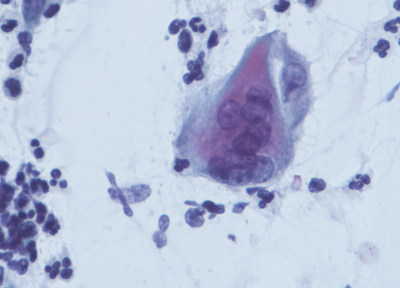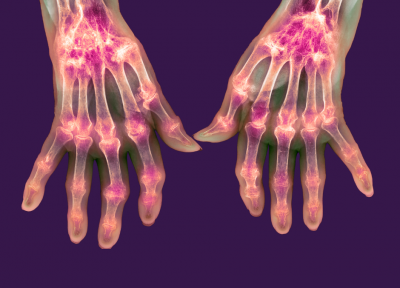Treatments for Autoimmune Disorders
Immunologists are uncovering new information to continue improving treatment options available for autoimmune disorders.
On This Page:
Overview
Autoimmune diseases can need a variety of treatments. Because of the wide variety of symptoms they cause, which treatments you’ll need depends on which autoimmune disorder you have. Since everyone’s immune system, genetics, and environment are different the treatments that work for you will be unique. Immunologists are steadily uncovering new insights to expand our options to help manage autoimmunity.
Key Points
- Treatments for autoimmune disorders vary from person to person depending on which disorder they have and their unique situation.
- Immunologists are uncovering new information to continue improving treatment options available for autoimmune disorders.
- If you or a loved one are living with an autoimmune disorder and want to learn more, talk to a healthcare provider for personalized recommendations.
Treating Autoimmune Disorders
Treatments for autoimmune disorders focus on managing symptoms, reducing inflammation, and preventing the immune system from attacking self. This can include pain relievers and anti-inflammatory drugs like ibuprofen or steroids, A common treatment are drugs called immunosuppressants that prevent the immune system from attacking healthy cells and tissues. While immunosuppressants can prevent your immune system from attacking healthy cells, it can also prevent your immune system from attacking the pathogens it should. If your doctor recommends immunosuppressants, they will walk you through the risks and benefits of this treatment.
Immunotherapy for Autoimmune Disorders
Immunotherapy enhances the body’s own immune system to treat disease. First used as a breakthrough in cancer treatment, researchers are exploring how immunotherapy could treat autoimmune disorders. While immunotherapy may not treat every autoimmune disorder, for diseases like rheumatoid arthritis (RA) and multiple sclerosis (MS), immunotherapy can tamp down the immune system’s power, usually without difficult side effects. Immunotherapy can target specific components of the immune system that contribute to the autoimmune disorder.
An example of immunotherapy for autoimmune disorders is a drug called teplizumab. For people with Type 1 Diabetes (T1D), it can delay the onset of an advanced stage of T1D in people as young as 8 years old. Teplizumab changes immune cells to prevent them from attacking the pancreas and preserving a patient’s ability to produce insulin.
Researchers are continuing to study autoimmune disorders and immunotherapies to expand the treatments available for people living with autoimmune disorders.
Sources
- Jain, A., Marshall, J., Buikema, A., Bancroft, T., Kelly, J. P., & Newschaffer, C. J. (2015). Autism Occurrence by MMR Vaccine Status Among US Children With Older Siblings With and Without Autism. JAMA, 313(15), 1534. https://doi.org/10.1001/jama.2015.3077
- Taylor, B., Miller, E., Farrington, Cp., Petropoulos, M.-C., Favot-Mayaud, I., Li, J., & Waight, P. A. (1999). Autism and measles, mumps, and rubella vaccine: no epidemiological evidence for a causal association. The Lancet, 353(9169), 2026–2029. https://doi.org/10.1016/s0140-6736(99)01239-8
- Madsen, K. M., Hviid, A., Vestergaard, M., Schendel, D., Wohlfahrt, J., Thorsen, P., Olsen, J., & Melbye, M. (2002). A Population-Based Study of Measles, Mumps, and Rubella Vaccination and Autism. New England Journal of Medicine, 347(19), 1477–1482. https://doi.org/10.1056/nejmoa021134
Related Topics
Downloads
External Resources
Latest News


